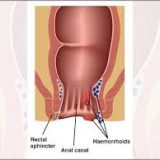Intensivists Perform
Intensivists perform a wide range of procedures and interventions in the ICU as part of their comprehensive care for critically ill patients. These procedures are essential for managing acute and life-threatening conditions, ensuring optimal patient care, and supporting the patient’s recovery. Some of the key procedures and interventions that intensivists are trained to perform include:
Endotracheal Intubation:
Intubation involves the insertion of a breathing tube into the trachea to secure a patient’s airway and facilitate mechanical ventilation. Intensivists are skilled in performing this procedure to support patients who require respiratory assistance due to conditions such as respiratory failure, airway obstruction, or decreased consciousness.
Central Venous Catheter Placement:
Intensivists often insert central venous catheters, also known as central lines, to provide access for the administration of medications, fluids, and blood products, as well as for monitoring central venous pressure and obtaining blood samples. These catheters are typically placed in large veins, such as the internal jugular, subclavian, or femoral veins.
Physical Layout:
The ICU and critical care department is typically located in a dedicated section of the hospital, often with restricted access to ensure a quiet and controlled environment for patient care. Nursing stations for monitoring, medication preparation areas, and storage for equipment and supplies.
Staffing:
The department is staffed by a multidisciplinary team of healthcare professionals including intensivists, critical care nurses, respiratory therapists, pharmacists, nutritionists, physical therapists, and social workers. These individuals work collaboratively to provide comprehensive care to critically ill patients.

Arterial Line Insertion:
Arterial lines are placed by intensivists to monitor arterial blood pressure continuously and to facilitate frequent blood sampling for laboratory analyses. These lines are particularly important for patients with hemodynamic instability or those requiring close monitoring of blood pressure.
Pulmonary Artery Catheterization (Swan-Ganz Catheter):
In certain critically ill patients, intensivists may perform pulmonary artery catheterization to obtain detailed hemodynamic measurements and assess cardiac function. This procedure involves threading a specialized catheter through the right side of the heart and into the pulmonary artery, providing valuable information about cardiac output, pressures, and oxygenation.
Thoracentesis:
Intensivists may perform thoracentesis to drain fluid or air from the pleural space surrounding the lungs. This procedure is crucial for patients with pleural effusions or pneumothorax, as it can relieve respiratory distress and aid in diagnosis and treatment.
Paracentesis:
In patients with ascites, which is the accumulation of fluid in the abdominal cavity, intensivists may perform paracentesis to drain the excess fluid. This procedure can alleviate abdominal discomfort, improve respiratory function, and provide diagnostic information.
Bronchoscopy:
Intensivists use bronchoscopy to visualize the airways and obtain samples from the respiratory tract for diagnostic purposes. This procedure is valuable for evaluating and managing conditions such as suspected infections, airway obstructions, or bleeding in the airways.Tracheostomy:
In cases where prolonged mechanical ventilation is anticipated, intensivists may perform tracheostomy to create a surgical airway through the neck directly into the trachea. This procedure is often considered for patients who require long-term ventilator support.
Cardiopulmonary Resuscitation (CPR):
Intensivists are trained in advanced cardiac life support and are prepared to lead resuscitation efforts in the ICU during cardiac emergencies. They oversee the administration of medications, defibrillation, and other life-saving interventions as part of their role in managing critical cardiac events.
Invasive Hemodynamic Monitoring:
Intensivists use invasive monitoring techniques to assess hemodynamic parameters such as central venous pressure, pulmonary artery pressure, and mixed venous oxygen saturation. This information is critical for managing patients with hemodynamic instability or cardiovascular compromise.
Ventilator Management:
Intensivists are responsible for managing mechanical ventilation in critically ill patients, including setting appropriate ventilator parameters, adjusting settings based on patient response, and addressing complications such as ventilator-associated pneumonia or barotrauma.
Sepsis Management:
Intensivists are involved in the early recognition and management of sepsis and septic shock, including the administration of antibiotics, vasopressor therapy, and fluid resuscitation. Prompt intervention is crucial in improving outcomes for patients with severe infections.
Acute Life-Threatening Conditions Management:
Intensivists are trained to manage a broad spectrum of acute life-threatening conditions, such as acute respiratory distress syndrome (ARDS), acute kidney injury, neurologic emergencies, and severe sepsis, among others.
Procedural Sedation and Analgesia:
Before performing certain procedures in the ICU, intensivists may provide sedation and analgesia to ensure patient comfort and cooperation. They carefully monitor patients to mitigate the risks associated with sedation and minimize discomfort during procedures.
Overall, the procedures and interventions performed by intensivists in the ICU are aimed at supporting patients with critical illnesses, managing acute complications, optimizing organ function, and addressing emergent medical needs. Their expertise in performing these procedures is integral to the comprehensive care provided to critically ill patients in the intensive care setting.
Why choose
- An expert team of experienced Cardiologists with more then 20 years experience.
- Comprehensive Heart Care from Preventive to Diagnostic and Therapeutic
- Multidisciplinary Care for all kinds of Heart Ailments
- 24X7 Heart Attack (mycardio infraction) Support
